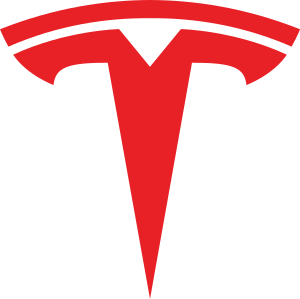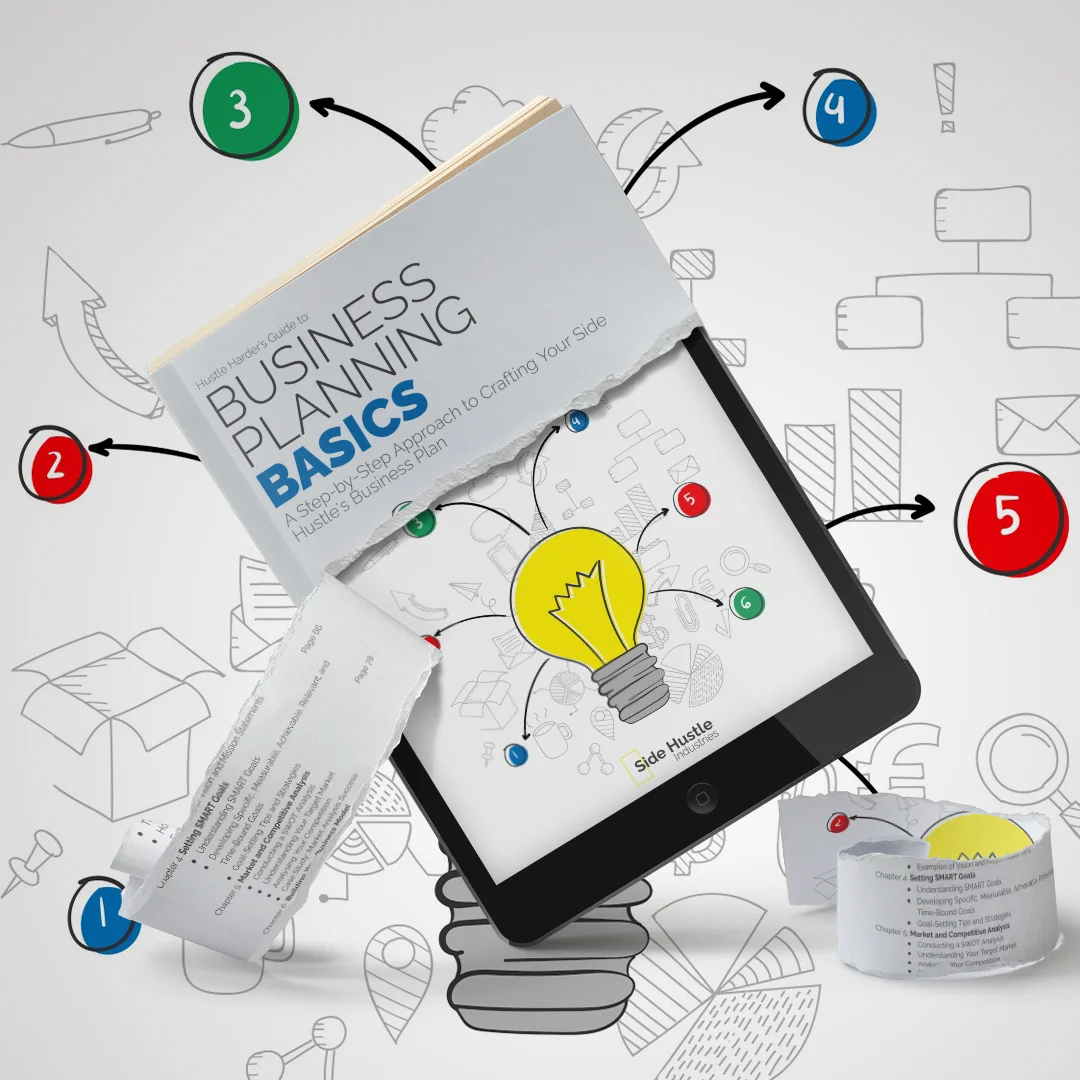
Business planning isn’t just a theoretical concept; it’s a real-world practice that has helped countless entrepreneurs transform their dreams into thriving enterprises. Learning from real-life success stories not only illustrates the tangible benefits of a solid business plan but also provides inspiration and valuable insights for your entrepreneurial journey. Today, we’ll explore some remarkable success stories that highlight the power of effective business planning.

Amazon: From Online Bookstore to Global E-Commerce Giant
Jeff Bezos, the founder of Amazon, started his journey with a simple idea—an online bookstore. But the success of Amazon, now one of the world’s largest e-commerce companies, is a testament to the power of a comprehensive business plan.
The Plan:
Bezos initially wrote a business plan that focused on the potential of selling books online. He foresaw the rise of e-commerce and recognized the need to create a user-friendly online platform for book sales.
Key Takeaways:
- Start Small: Amazon began as a niche business in the online book market. It allowed them to test their model and refine their processes before expanding into other product categories.
- Scalability: The initial business plan was scalable, and as Amazon gained traction in the book market, it naturally diversified into other areas.
- Innovation: Amazon’s commitment to innovation and customer-centricity, outlined in its business plan, has allowed the company to continually expand and redefine the e-commerce landscape.
Impact of Planning:
Amazon’s well-structured business plan laid the foundation for its remarkable growth. It started as an online bookstore and expanded into a vast e-commerce ecosystem, offering products, services, and even cloud computing solutions. Today, Amazon is a global tech giant, worth hundreds of billions of dollars.

Airbnb: Redefining Hospitality
Airbnb’s journey from a simple idea to a global hospitality platform is a prime example of how a solid business plan can unlock new markets and opportunities.
The Plan:
The founders of Airbnb, Brian Chesky, Joe Gebbia, and Nathan Blecharczyk, recognized the growing need for alternative accommodation options. They initially rented out air mattresses in their apartment, and this innovative idea evolved into the sharing economy platform we know today.
Key Takeaways:
- Identifying Market Gaps: The Airbnb founders identified a gap in the market—people seeking unique and affordable accommodation options. Their plan addressed this need and outlined how they would meet it.
- Platform Approach: The business plan was built around the idea of creating a platform that connects hosts and guests, enabling individuals to monetize their extra space.
- Customer-Centric: Airbnb’s success can be attributed to its customer-centric approach, which was integral to the initial business plan.
Impact of Planning:
Airbnb disrupted the hospitality industry by offering a new way for people to travel and find unique places to stay. Its innovative approach, guided by a comprehensive business plan, has reshaped how people think about travel and accommodations.

Tesla: Electrifying the Automobile Industry
Elon Musk’s Tesla Inc. has revolutionized the automobile industry by introducing electric vehicles (EVs) and sustainable energy solutions.
The Plan:
Tesla’s business plan, which dates back to its early days, was rooted in the goal of accelerating the world’s transition to sustainable energy. It involved the production of electric vehicles and the development of battery technology.
Key Takeaways:
- Disruptive Innovation: Tesla’s business plan was centred on the disruptive innovation of electric vehicles, which had the potential to revolutionise transportation and energy.
- Vertical Integration: Tesla planned to control its entire value chain, from manufacturing EVs to producing the batteries that powered them.
- Long-Term Vision: The business plan was built on a long-term vision that encompassed not only electric vehicles but also renewable energy solutions like solar and energy storage.
Impact of Planning:
Tesla’s business plan has led to the production of some of the world’s most popular electric vehicles and a significant shift toward sustainable energy solutions. The company’s market capitalization now rivals some of the oldest and most established automakers in the world.

Starbucks: The Coffeehouse Chain that Conquered the World
Starbucks, the global coffeehouse chain, has become a household name, and its journey is a testament to how a well-thought-out business plan can transform a simple idea into an international brand.
The Plan:
Starbucks’ business plan was initially centred on creating a “third place” between work and home, offering high-quality coffee and a unique social experience. The plan also emphasised the importance of establishing a strong brand identity.
Key Takeaways:
- Customer Experience: The focus on creating a welcoming atmosphere and an exceptional customer experience was integral to Starbucks’ business plan.
- Brand Building: The plan highlighted the importance of building a strong, globally recognizable brand.
- Market Expansion: Starbucks aimed to establish a global presence, and its business plan outlined a strategic approach for international expansion.
Impact of Planning:
Starbucks’ business plan helped it become one of the world’s most recognizable and successful coffee brands. The company’s global network of coffeehouses, innovative products, and dedication to sustainability have made it an iconic brand worldwide.

Uber: Revolutionising Transportation
Uber, the ride-sharing platform, changed the way people think about transportation and mobility services. Its journey from a startup to a global giant showcases the impact of effective business planning.
The Plan:
Uber’s business plan was rooted in providing an innovative solution to the traditional taxi service. It aimed to connect riders with drivers using a mobile app, offering more convenience and transparency.
Key Takeaways:
- Technology-Driven Innovation: Uber’s plan was built on technology and innovation, allowing it to disrupt the traditional taxi industry.
- Scalability: The initial plan focused on scaling rapidly, reaching new markets, and adapting its service to different transportation needs.
- User Experience: Uber’s commitment to providing a seamless and convenient user experience was a cornerstone of its business plan.
Impact of Planning:
Uber’s business plan transformed transportation by making it more accessible and convenient for millions of people worldwide. It created new income opportunities for drivers and reshaped the urban mobility landscape.

Apple: Innovating Personal Computing and Beyond
Apple Inc., one of the world’s most iconic technology companies, has consistently been a trailblazer in personal computing, mobile devices, and software. Its history is a testament to the importance of a strong business plan.
The Plan:
Apple’s early business plan was centred around the goal of creating user-friendly personal computers. It emphasised innovation, design, and a focus on the user experience.
Key Takeaways:
- Design Excellence: Apple’s plan highlighted the importance of design and creating aesthetically pleasing and user-friendly products.
- Ecosystem Approach: Apple’s business model included a comprehensive ecosystem of hardware, software, and services that all work seamlessly together.
- Customer-Centric: The plan was founded on the principle of understanding and catering to the needs of the end user.
Impact of Planning:
Apple’s business plan has resulted in a legacy of innovation that includes iconic products like the Macintosh, iPhone, iPad, and Apple Watch. The company’s focus on design, user experience, and ecosystem integration has made it one of the most valuable tech companies in the world.

McDonald’s: The Fast-Food Empire
McDonald’s, the global fast-food giant, has been a symbol of success in the fast-food industry. Its journey highlights the power of a well-structured business plan.
The Plan:
McDonald’s business plan, initiated by Ray Kroc, was focused on standardising the fast-food experience, creating a franchise model, and emphasising consistency in quality and service.
Key Takeaways:
- Standardisation: McDonald’s business model revolved around standardising its products and service to ensure consistency across locations.
- Franchising: The plan included a franchising model that allowed individuals to own and operate McDonald’s restaurants, enabling rapid expansion.
- Customer Experience: McDonald’s placed a strong emphasis on providing a consistent and efficient customer experience.
Impact of Planning:
McDonald’s business plan has led to the establishment of a global fast-food empire with thousands of locations worldwide. It is a testament to the power of a well-executed franchise model and a focus on consistency.

Google: Organizing the World’s Information
Google, the search engine giant, has fundamentally changed how we access and use information online. Its story showcases the importance of a strong business plan in technology and innovation.
The Plan:
Google’s business plan was rooted in organising the vast amount of information on the internet. It focused on creating a highly efficient and user-friendly search engine.
Key Takeaways:
- Search Innovation: Google’s plan was built on a commitment to revolutionising internet search, offering more accurate and relevant results.
- Monetization: While its primary mission was information organisation, the business plan also outlined ways to monetize its services, including advertising.
- User-Centric: Google placed a strong emphasis on serving the needs of its users and continuously improving the search experience.
Impact of Planning:
Google’s business plan has transformed how people access and use information online. The company has expanded far beyond search, offering a range of services, from email to cloud storage, and its search engine remains a dominant force in the digital world.

WhatsApp: Connecting the World
WhatsApp, a messaging platform, changed the way people communicate globally. Its success story highlights the role of a well-structured business plan in technology innovation.
The Plan:
WhatsApp’s business plan was centred on providing a simple and efficient way for people to send messages and stay connected through mobile devices. It aimed to provide an alternative to traditional text messaging.
Key Takeaways:
- User-Centric Approach: WhatsApp’s plan was built around a focus on the user experience, ensuring easy and reliable communication.
- No Ads, No Games: The plan involved a commitment to avoiding advertising and distractions within the app, prioritising privacy and direct communication.
- Global Expansion: WhatsApp’s business model included plans for global expansion, enabling users around the world to connect.
Impact of Planning:
WhatsApp’s business plan transformed how people communicate across borders and has played a significant role in making messaging platforms central to modern communication. It was eventually acquired by Facebook, making it one of the most prominent messaging apps worldwide.

Dropbox: Simplifying File Storage and Sharing
Dropbox, a cloud-based file storage and sharing service, revolutionized how people manage and share digital files. Its journey demonstrates the impact of a well-thought-out business plan.
The Plan:
Dropbox’s business plan was built on the idea of making file storage and sharing simple and accessible through cloud technology. It aimed to provide a user-friendly solution for individuals and businesses.
Key Takeaways:
- User Convenience: Dropbox’s plan prioritised user convenience, allowing easy file synchronisation across devices.
- Freemium Model: The business plan involved offering a “freemium” model, allowing users to start for free with the option to upgrade for more storage.
- Cross-Platform Compatibility: Dropbox’s approach involved ensuring compatibility across various platforms, including desktop and mobile devices.
Impact of Planning:
Dropbox’s business plan has simplified file storage and sharing for millions of users, from individuals to businesses. It has become a household name in cloud storage and collaboration tools.
These real-life success stories highlight the tangible benefits of having a solid business plan. They emphasize the importance of clear vision, goal setting, innovation, and a strategic approach. Whether you’re just starting your side hustle or you’re already in the midst of your entrepreneurial journey, these stories serve as a source of inspiration and a testament to the transformative power of effective business planning. By crafting your own comprehensive business plan, you’re setting the stage for a journey filled with opportunities, growth, and the potential for remarkable success.

*Also available on Amazon in Kindle, Soft Cover & Hard Cover formats. —> Click Here.
